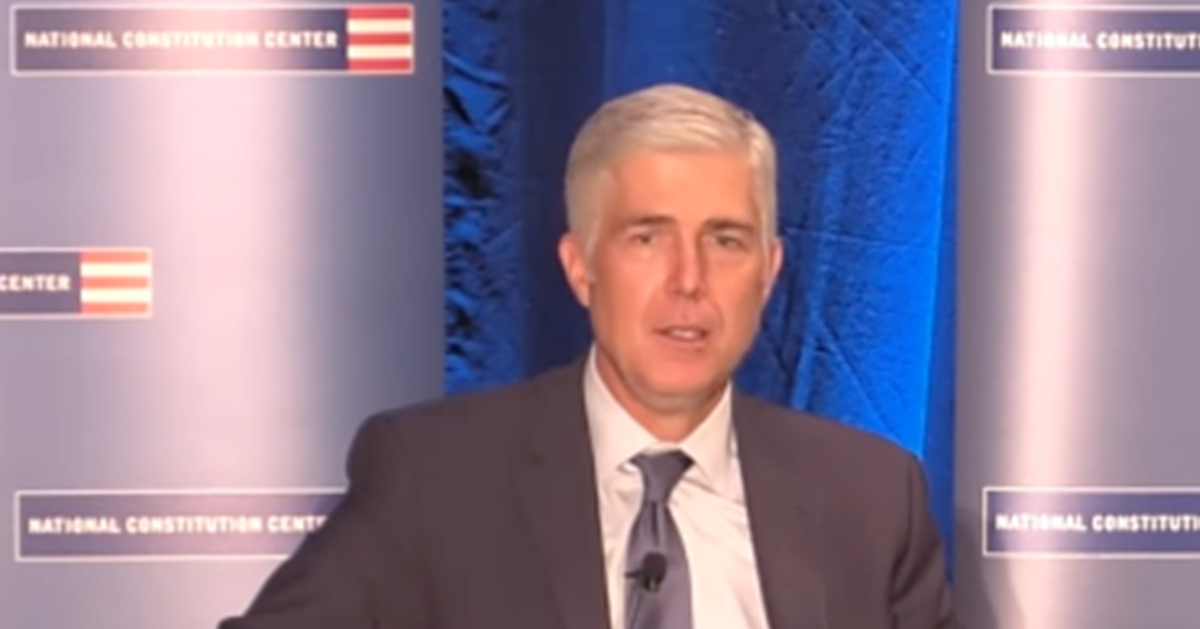Whitmer Avoids Condemning Tlaib’s Comments on Nessel's Stance Toward Israel
Michigan Democrat Gov. Gretchen Whitmer declined to condemn Rep. Rashida Tlaib’s controversial remarks about state Attorney General Dana Nessel during a recent interview.
Appearing on CNN's State of the Union on Sunday, Whitmer was asked about -- but did not criticize -- the "Squad" member's criticism of Nessel, which involved accusations of bias based on Nessel's Jewish heritage, remarks that followed Nessel’s decision to prosecute anti-Semitic protesters at the University of Michigan, as the Daily Wire reports.
The controversy stemmed from Tlaib's remarks accusing Nessel of unfairly targeting anti-Israel protesters due to her Jewish faith, and in the interview, Whitmer avoided taking a side, insisting that her focus was on maintaining legal protections for all communities in Michigan.
Nessel Defends Herself Against Bias Allegations
At the center of the controversy are the prosecutions of 11 far-left protesters involved in an incident at the University of Michigan. These individuals were charged with a range of offenses, including attempted ethnic intimidation and obstructing police officers. Nessel’s office took legal action against the protesters, who were reportedly involved in anti-Semitic demonstrations.
Tlaib, a Democratic congresswoman, accused Nessel of allowing her Jewish heritage to influence the case. “It seems that the attorney general decided, if the issue was Palestine, she was going to treat it differently,” Tlaib said. She suggested this difference in treatment raised questions about potential bias in how Nessel handles issues related to Israel.
Nessel Rejects Accusations As Antisemitic
Nessel responded swiftly to Tlaib's accusations, calling them "antisemitic and wrong." She defended her professional integrity and rejected the notion that her religion impacted her ability to perform her duties as attorney general. “Rashida Tlaib should not use my religion to imply I cannot perform my job fairly,” Nessel stated.
The case involving the University of Michigan protesters has sparked a broader debate about how political and religious identities intersect with public duties. Nessel, who has held her position since 2019, has often been vocal about protecting civil rights and ensuring that no group faces discrimination under her watch.
Whitmer Refuses To Take A Side
During the CNN interview, Jake Tapper pressed Whitmer on whether she would support Nessel or condemn Tlaib’s remarks. Despite the clear accusations of antisemitism against Tlaib, Whitmer remained neutral. “Like I said, Jake, I’m not going to get in the middle of this argument that they’re having,” Whitmer told Tapper.
Whitmer repeatedly emphasized that her goal was to ensure the protection of all communities in Michigan, without specifically addressing Tlaib’s comments. She noted that it was essential for the law to be applied fairly to both Jewish and Palestinian communities, but stopped short of directly defending Nessel or criticizing Tlaib.
Political Ramifications Of Whitmer’s Stance
Whitmer's decision not to engage directly in the dispute has drawn attention from both sides of the political aisle. Some believe Whitmer missed an opportunity to stand against antisemitism, while others argue that her position was a measured attempt to avoid escalating tensions between two influential figures in Michigan’s political landscape.
Tlaib, a well-known advocate for Palestinian rights, has frequently been involved in heated discussions about U.S. policy toward Israel. Her remarks about Nessel come at a time of increasing polarization on issues related to the Middle East, making Whitmer’s neutral stance even more significant in the current political climate.
Jake Tapper Presses For Clarification
Throughout the interview, Tapper made several attempts to get a clearer stance from Whitmer. He reiterated the seriousness of Tlaib's accusations, highlighting that Tlaib’s comments touched on the sensitive issue of religious bias in public office. Yet Whitmer remained consistent in her refusal to take sides.
“I only want to make sure that both these communities are protected and respected under the law in Michigan,” Whitmer said, framing her response in terms of broader community relations rather than focusing on the specifics of the disagreement between Tlaib and Nessel.
Broader Implications For Michigan Politics
Whitmer’s refusal to condemn Tlaib has broader implications for Michigan politics, as it reflects the governor’s careful balancing act between supporting her attorney general and maintaining good relations with Tlaib, a high-profile member of the Democratic Party. Both Tlaib and Nessel hold significant influence in their respective constituencies, and Whitmer’s neutrality may be an attempt to avoid alienating either side.
This issue also highlights ongoing tensions within the Democratic Party, where divisions over U.S.-Israel relations often surface. As a governor with national ambitions, Whitmer’s approach to this issue could be seen as part of a broader strategy to navigate the complexities of intra-party debates on foreign policy and religion.
Nessel's Statement Reaffirms Commitment To Fairness
While Whitmer remained neutral, Nessel has continued to defend her actions and leadership as Michigan's attorney general. Her office has focused on prosecuting hate crimes and ensuring that Michigan's laws are applied evenly, regardless of the religious or political views of those involved.
Nessel’s statement reaffirming her commitment to fairness has been viewed by some as a necessary response to Tlaib’s accusations. Her willingness to address the issue head-on contrasts with Whitmer’s more reserved approach, creating a clear division in how the two officials are handling the controversy.
Conclusion
Michigan Gov. Gretchen Whitmer declined to condemn Rep. Rashida Tlaib's arguably antisemitic comments about Attorney General Dana Nessel during a CNN interview.
The controversy revolves around Tlaib accusing Nessel of bias due to her Jewish heritage, a claim Nessel has strongly refuted as antisemitic. Whitmer avoided taking a side, emphasizing the protection of both Jewish and Palestinian communities under the law.
This issue highlights tensions within Michigan politics and reflects broader divisions within the Democratic Party over U.S.-Israel relations.



